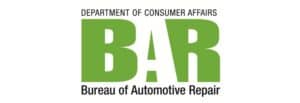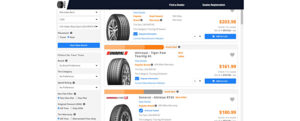There’s a degree of panic that’s pushing companies into compliance as policymakers, lawyers and insurance companies debate the requirements and try to accurately predict how they should be implemented
There is much concern among vehicle manufacturers and shop operators that overly restrictive regulations, such as the California Consumer Privacy Act (CCPA), may suffocate ADAS and AI technologies by overregulating their implementation.

Consumer protection legislation is seen as a way for government to take back control of user data security, which has suffered criticism in recent months. More regulation is the expected reaction to Covid-19 that the market seems powerless to stop. Regulators believe that by enforcing coronavirus privacy policies, shop owners and operators will be encouraged to protect their customer’s data and confidentiality.
The new California law is considered groundbreaking legislation, shaped to tackle most privacy concerns in the digitized world. It could act as a blueprint for consumer protection legislation across the country. There is a degree of panic that’s pushing companies into compliance as policymakers, lawyers and insurance companies debate the requirements and try to accurately predict how they should be implemented. Dealerships and shop owners are therefore left to worry whether their compliance measures will be classified as “adequate” in the eyes of regulatory authorities.
THE PROS: Future Data Security
With cybercriminals ready to exploit any vulnerability in networks, applications, and website infrastructures, as well as potential leaks from careless or malcontent employees, the security of data has never been more fragile. Shop owners can no longer afford to ignore cybersecurity and the CCPA can act as a guide to achieving a higher degree of data security.
Data breaches and leaks take a serious toll on a shop owner’s reputation. Customers can lose confidence in a brand if they suspect their data is not safe from exposure. With improved cybersecurity, customers will not only continue to put their trust in auto shops, but they will become more willing to share data, knowing they are doing so in a secure environment. Shop owners can thus increase their customer base.
The government’s goal is to standardize and synchronize the monitoring environment. This will essentially mean that, once dealerships and repair shops are compliant, they can operate across numerous permitting agencies without having to worry about diverging state and national regulations.
THE CONS: Overregulation
As is often the case with legislation, especially that coming from California, there is a concern of overregulation when it comes to the environment. Adding red tape in the form of endless requests for approval of every agency and procedure can significantly burden the consumer convenience of services in an age when user-friendliness is one of the key factors in retaining customers.
One of the big drawbacks of compliance with the new consumer privacy law is, of course, the cost. In order to become compliant, it is not enough for a sales, service, and repair shop to update their internal policies. Depending on the amount of data processed, multi-shop operators now need to appoint a data protection manager just to ensure the privacy process for handling estimates, claims and supplements.
This suggests additional cybersecurity features that need to be included in the software architecture, meaning more work for insurance carriers and system developers. Software that offers data protection, integrity and classification features must now be implemented system-wide for better insight and control of who and where the data is being processed. All of this comes at a cost, too.
Another major concern is the potential of massive fines for non-compliance under the new California privacy laws. Automotive aftermarket business owners can now be fined thousands of dollars for a breach of customer confidentiality.
IN CONCLUSION
Consumer privacy laws are here to stay and will rewrite cybersecurity standards to make companies accountable for failures to protect data in the eyes of the law. While dealers, shop owners, regulators and insurance companies are grappling with enforcement of the new California privacy law, a decline in data breaches is expected to follow. Whether the CCPA will live up to its full potential as a revolutionary data protection regulation or flounder in litigation will likely be decided during implementation under the coronavirus pandemic.








Comments are closed.